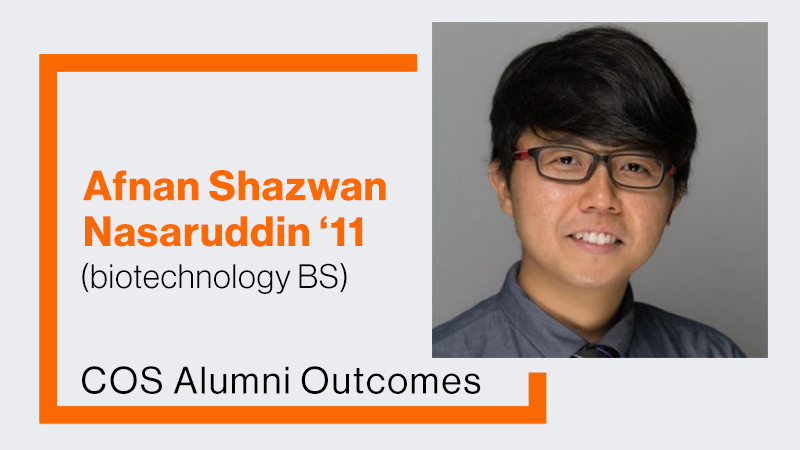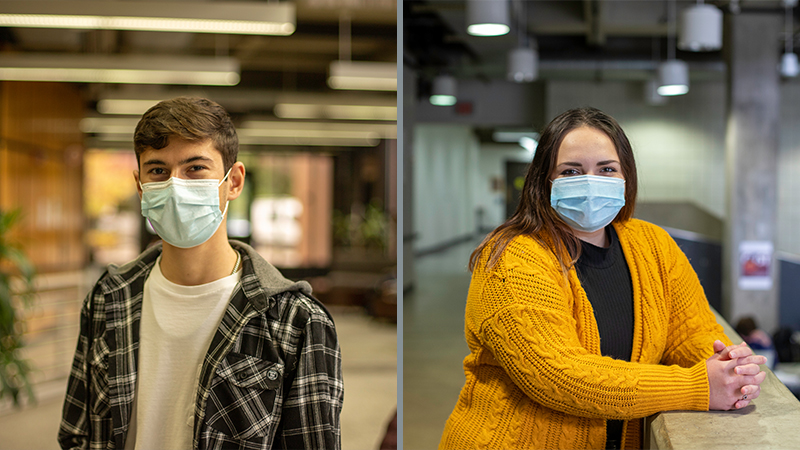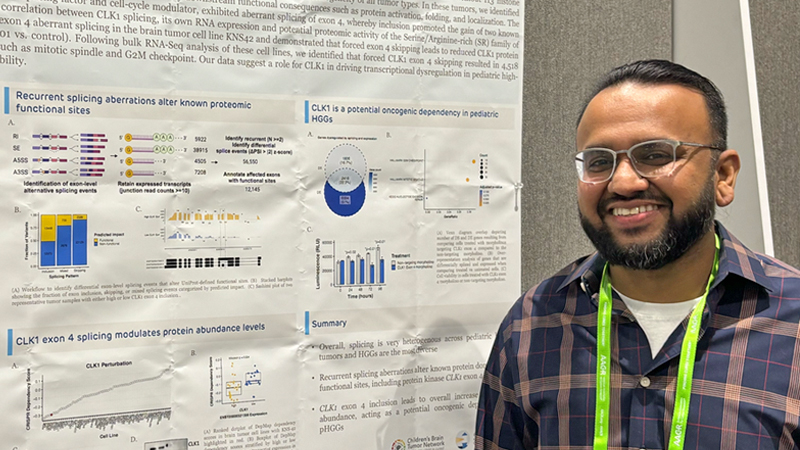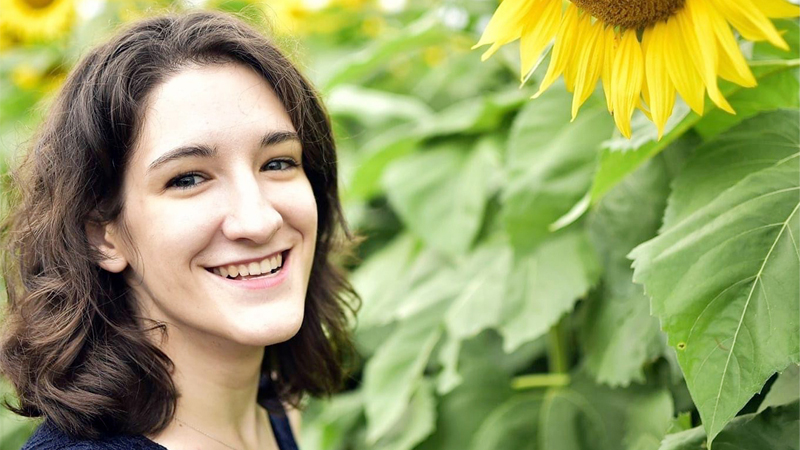RIT Student Research Featured on the NASA Landsat Science Website
Bianca Cilento, a student at RIT, caught the attention of a program developer which led to her research work being featured on the NASA Landsat Science website.
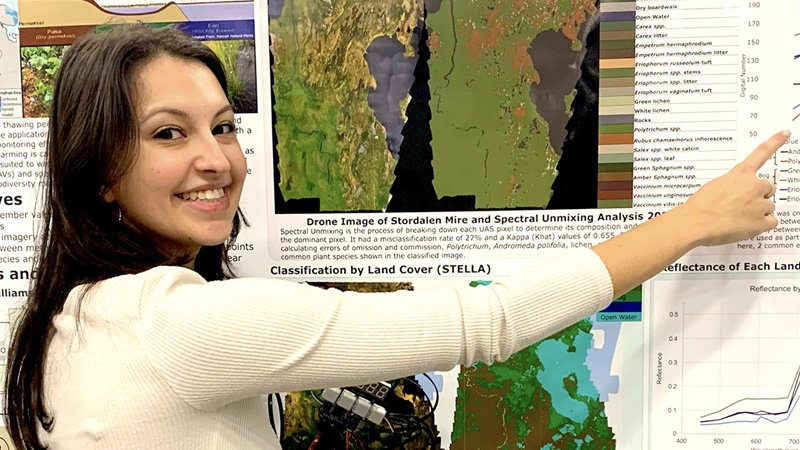
Bianca was drawn to RIT's environmental science program for its interdisciplinary and comprehensive curriculum. As a person with a wide range of interests, she was happy that the program provides ample opportunities for out-of-the-box thinking and exploring a variety of fields. "I am truly grateful for RIT's provision of opportunities, which granted me the autonomy and resources to create and execute my own research project. This experience has played a vital role in the success and impact of my research." Bianca’s research on biodiversity in vulnerable ecosystems is reaching a global audience now that it has been featured on the NASA Landsat Science website.
In the summer of 2022, Bianca participated in the EMERGE REU program and collaborated with Dr. Michael Palace at the University of New Hampshire (UNH). During the American Geophysical Union (AGU) Fall Meeting in San Francisco, Bianca presented her research entitled "Quantifying Plant Biodiversity Using Different Spectrometers, Spectral Unmixing, and UAV Imagery." This research is a part of the EMergent Ecosystem Responses to ChanGE (EMERGE) Biology Integration Institute, which is funded by the National Science Foundation.
Bianca's exceptional research caught the attention of a developer for the STELLA program at the AGU meeting, leading to her work being featured on the NASA Landsat Science website in the STELLA Use Cases section. STELLA spectrometers are highly valuable tools in promoting active scientific engagement, inquiry, and discovery within science education and outreach.
Today, Bianca is continuing her independent research for her thesis with the support of RIT professors, Dr. Carmody McCalley and Dr. Karl Korfmacher, along with Dr. Michael Palace from UNH. Her project utilizes field spectrometers to track and evaluate the decline of biodiversity in vulnerable ecosystems. Bianca built one of STELLA’s instrument designs and successfully collected data at an Arctic field site in Sweden during her summer research.
Bianca Cilento's passion for math and science was greatly influenced by her parents and older brother, Joey. Her mother instilled in her a deep appreciation for education, while her father nurtured her natural curiosity. As a role model, Joey imparted valuable problem-solving skills, troubleshooting techniques, and taught her how to overcome obstacles. These skills have proved to be incredibly valuable as Bianca now pursues her MS degree in environmental science.
Bianca has valuable advice for students looking for research opportunities at RIT. She stresses the significance of selecting projects that align with your interests and not underestimating your abilities. “Don’t sell yourself short. You never know where opportunities might lead if you don’t even try.”





